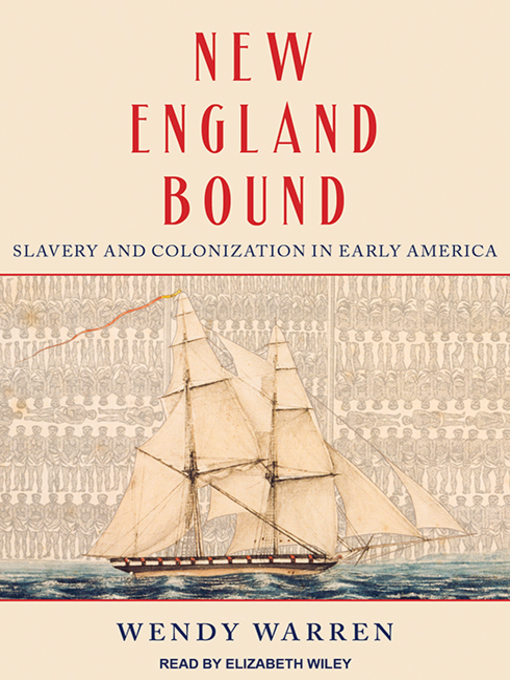New England Bound
Slavery and Colonization in Early America
Using original research culled from dozens of archives, Warren conclusively links the growth of the northern colonies to the Atlantic slave trade, showing how seventeenth-century New England's fledgling economy derived its vitality from the profusion of ships that coursed through its ports, passing through on their way to and from the West Indian sugar colonies. What's more, leading New England families like the Winthrops and Pynchons invested heavily in the West Indies, owning both land and human property, the profits of which eventually wended their way back north. That money, New England Bound shows, was the tragic fuel for the colonial wars of removal and replacement of New England Indians that characterized the initial colonization of the region.
-
Creators
-
Publisher
-
Awards
-
Release date
December 6, 2016 -
Formats
-
OverDrive Listen audiobook
- ISBN: 9781515995630
- File size: 290078 KB
- Duration: 10:04:19
-
-
Languages
- English
-
Reviews
-
Publisher's Weekly
March 14, 2016
Countering the historiography of colonial New England that’s focused on Puritans and Native Americans, Warren, an assistant professor of history at Princeton, elegantly makes clear how “the shadow of an Atlantic slave trade darkened even the earliest interactions between Europeans and Indians in New England.” Readers familiar with the Salem witch trials will recognize the figure of Tituba, the Carib Indian slave of the community’s minister and the alleged instigator of the rituals that sparked the hysteria; Warren reveals that enslaved Africans were far from anomalous in these colonies, having arrived as early as 1638. Leading New England merchants, many of whom had close ties of kinship and business with the English plantation colonies in the West Indies, were heavily invested in the transatlantic trade in humans. Even less elite residents of these colonies—including sailors, artisans, and farmwives—were aware of and profited, directly or indirectly, from the presence of slaves in their communities. By describing the lived experiences of these slaves, Warren adds a new and surprising dimension to the oft-told story of the New England colonies—one that offers much-needed revision and complication of the simple and comforting myths of intercultural friendship and virtuous endeavor. Illus.
-
Loading
Why is availability limited?
×Availability can change throughout the month based on the library's budget. You can still place a hold on the title, and your hold will be automatically filled as soon as the title is available again.
The Kindle Book format for this title is not supported on:
×Read-along ebook
×The OverDrive Read format of this ebook has professional narration that plays while you read in your browser. Learn more here.

